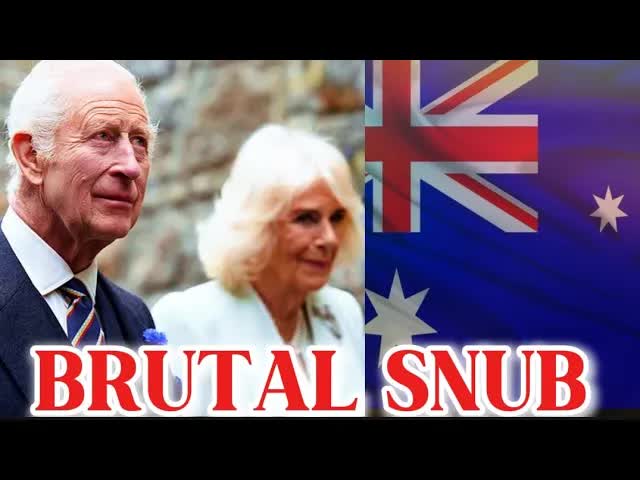King Charles and Queen Camilla are set to embark on a highly anticipated tour of Australia this Friday, marking a significant milestone as their first official visit since taking the throne.
This trip is not just ceremonial; it comes with heavy expectations and the potential to reshape the monarchy’s relationship with this vital Commonwealth nation.
The royal couple is expected to receive an enthusiastic welcome from the Australian public, known for their spirited displays of affection towards the monarchy.
As the couple makes their way through the streets, they will likely be greeted by crowds waving the Union Jack alongside the Australian flag, symbolizing the enduring connection between the two nations.
However, the political climate may cast a shadow over the festivities.
Australia has seen a noticeable rise in republican sentiment, prompting discussions about its future ties to the British monarchy.
This backdrop adds an intriguing layer to what could be a defining moment for the crown.
The itinerary for the king and queen is packed with public engagements, designed to foster connections with Australians from diverse backgrounds.
From bustling cities to regional areas, their mission is to connect with the populace, showcasing a modern monarchy that resonates with contemporary issues.
Whether engaging with younger Australians or meeting community leaders, their aim is to illustrate the relevance of the monarchy in today’s society.
Yet, this visit is not merely a series of events; it’s a diplomatic balancing act.
King Charles and Queen Camilla will engage in high-level discussions with Australian leaders, addressing both historical ties and future partnerships.
However, the timing of their tour is crucial, as Australia grapples with its identity and its relationship with the British crown.
The monarchy’s role in Australia has been a topic of debate for years, and this visit reignites those conversations.
Media coverage is expected to be extensive, capturing both the excitement of the royal visit and the underlying tensions.
As Australia reflects on its colonial history, the king and queen’s interactions with Indigenous communities will highlight the ongoing journey toward reconciliation.
This aspect of their visit is particularly significant, as it acknowledges the complex narratives that shape Australia today.
King Charles faces a unique challenge during this tour.
He must carve out his own identity as a monarch while honoring the legacy of his mother, Queen Elizabeth II, who was deeply cherished by many Australians.
How he navigates the intricate political landscape will be observed closely, not only in Australia but throughout the Commonwealth.
The outcomes of this visit could have significant implications for the monarchy’s standing in other realms as well.
Despite the warm reception expected from the public, the royal couple may encounter some political frostiness.
This was evident during a recent reception in Canberra, where several state premiers notably chose to absent themselves.
This subtle snub speaks volumes about the shifting attitudes towards the monarchy within certain political circles in Australia.
The absence of these key figures at a welcome event underscores a growing republican sentiment.
This political dynamic poses a challenge for King Charles and Queen Camilla, as they must bridge the gap between public affection and political realities.
Their success will hinge on their ability to connect meaningfully with Australians, even as the political landscape remains contentious.
The parallels with recent royal visits to other Commonwealth nations, such as Jamaica, further illustrate the complexities they face.
The Jamaican experience serves as a cautionary tale for the royal couple.
During a visit meant to strengthen ties, Jamaican Prime Minister Andrew Holness publicly expressed intentions to sever ties with the monarchy, highlighting a broader desire for self-determination.
This moment underscored the urgency of the republican movement, reminding the royal family that the winds of change are blowing across the Commonwealth.
As Australia contemplates its identity, the monarchy’s future hinges on its capacity to adapt to these changing tides.
The public increasingly demands a governance structure that reflects their values and aspirations.
The days of unquestioning loyalty to the crown are fading, replaced by a critical examination of its relevance and impact on former colonies.
Amidst this backdrop, the upcoming royal tour has reignited discussions about Australia’s status as a constitutional monarchy.
With republican sentiment gaining traction, fueled by historical grievances and evolving national pride, many Australians are questioning whether their ties to the British crown still hold significance.
The absence of political leaders at key events signals a shift in the landscape, where republican voices are becoming more influential.
As King Charles and Queen Camilla prepare for their journey, they step into a moment filled with both promise and uncertainty.
The success of their visit could either reinforce the monarchy’s standing or accelerate the push towards a republic.
The world will be watching closely, as this royal tour may very well shape the future of the British crown’s relationship with Australia for years to come.
